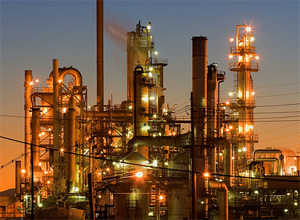Rompetrol’s 2011 group loss will narrow to $40 million from $120 million loss for 2010, mostly from the unprofitable refinery, after cutting expenses by $50 million to $60 million, while the oil company should swing to a profit in 2012.
Astana, Kazakhstan-based KazMunaiGaz National Co., the sole owner of the group, is urging the company to return to profitability as a $1 billion loan approved last year has to be paid back by August. Rompetrol plans to use as much as $350 million by October 2011 to upgrade Petromidia refinery, which 45 percent owned by the Romanian government, and boost capacity to 5 million tons per year.
“There are certain pressures from our shareholder to recover the money it’s lent us and to perform better than we are performing,” Grigoryev said. “Because investing a lot of money into ventures and not seeing any return on investment is quite a huge problem, we are doing everything possible and impossible to improve our operational results.”
Rompetrol’s refining margins will remain unchanged in 2011 at $2 to $5 per barrel and increase to as much as $7 in 2012 as demand for fuel picks up during a recovery from Romania’s worst recession on record, Grigoryev said.
The Petromidia refinery posted a consolidated net loss of $20.6 million in the third quarter this year, compared with $39 million in the same period last year, as a 42-day maintenance shutdown helped cut costs, according to an earnings statement filed with the Bucharest Stock Exchange on Nov. 11.
The company plans to start producing more diesel after completing its refinery upgrade to meet local market demands for less gasoline, Grigoryev said.
“We are changing the slate of products,” he said. “We are changing the composition of the basket of products.”
Rompetrol, which issued 570.3 million euros ($780 million) in bonds held by the Romanian state for unpaid refinery historical taxes, opted to swap 1.97 billion lei ($630 million) of that debt into a 44.7 percent stake to authorities, retaining a majority in the company, after paying part of the debt in cash.
The government challenged the debt conversion, requesting Rompetrol pay the full amount in cash, and froze the refinery’s assets to prevent KazMunaiGaz from putting a lien on them because of the unpaid debt.
The government has initiated more than 20 lawsuits against the group, saying it misinterpreted the bond agreement, which stated that Rompetrol had the option to either pay the debt in full or convert all the bonds into shares.
Grigoryev said the group has “fulfilled” its obligations stipulated in the bond agreement when it chose to pay part of the debt and convert the remaining bonds into shares.
KazMunaiGaz is willing to buy back the state’s minority package at fair value, based on current market conditions.
Grigoryev declined to give figures, while saying Rompetrol is ready to pay a “certain amount right away” and the rest as agreed with the government.
The group told weekly Saptamana Financiara on Oct. 22 that it is willing to give the state a downpayment of $100 million immediately after reaching an agreement to help finance its budget deficit.
Exactly on the last date the bonds reached maturity, on Sept. 30, we had a meeting with the prime minister and the minister of finance, where the government has expressed a clear will to get full compensation,” Grigoryev said. “That’s why we have made a proposal to buy back shares at the market value and at the present moment we are waiting for the feedback from the government.”
The Finance Ministry didn’t respond to Bloomberg e-mailed requests or phone calls seeking comments.
13 Февраля 2026 | пятница | 01:53


